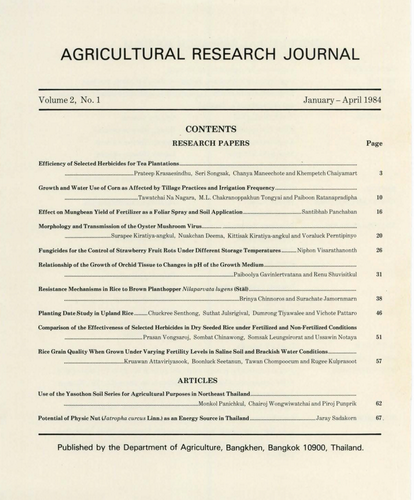Growth and Water Use of Corn Affected by Tillage Practices and Irrigation Frequency
Abstract
During the 1983 dry season (March - May) a study was made of the effec ton water use and grwoth of sweet corn whensown into zero tillage and conventional tillage seedbed conditions. Two different trrigation frequencies, 7 and 17 day intervals, were also compared under the two tillage treatmenyts. the experiment was conducted on the infertille Korat sandy loam soil at the Northeast Agricultural Research Center, Tha Phra.
The zero tillage seedbed treatment gave significantly better moisture conservation and reduced water use by the crop when compared with the conventional tillage practice. This effect was greater with an irrigation frequency of 14 days. However, plant growth and development as expressed in terms of total dry matter production, ear number, total fresh weight of ears and mean ear fresh weight were all significantly lower from the Zero tillage treatments relative to sowing into a seedbed prepared by conventiional tillage techniques. It is concluded that for grwoth and yield of seeet cornm, the zero-tillage treatment would only be suitable under conditions of reasonable soil fertility.
Downloads
Published
How to Cite
Issue
Section
License
Thai Agricultural Research Journal



